Can you wear contacts in the ocean while enjoying a scuba diver or a snorkeling trip? The simple answer is Yes! Many divers have some form of eyesight restriction. The most common being short-sightedness where things that are further away will appear blurry. However, there are a number of factors to consider when making the decision to wear contact lenses while diving or snorkeling.
Can you wear contacts in the ocean?
In this article we will discuss the advantages and disadvantages of different types of eyewear underwater and answer the following question:
- Can you wear contacts in the ocean? And is it better to use soft or hard lenses?
- Monthly or daily lenses?
- What are the risks of diving or snorkeling with contact lenses?
- What are the alternatives to contact lenses?
- Top tips for wearing contact lenses while SCUBA diving.
Can you scuba dive with contact lenses?
The choice as to which type of contact lens to use is a personal one. The type of contact lens you normally wear on land is not necessarily the best type of contact lens to wear underwater. The two main types of contact lenses available are soft lenses and hard lenses. So what are the advantages and disadvantages of each?
Soft lenses
Soft lenses are the best choice for divers. Soft lenses are designed to allow gases to permeate. When wearing contact lenses and ascending from a dive, nitrogen will escape the eye. With hard lenses, the nitrogen may create small bubbles that get stuck behind the lens. With soft lenses however the nitrogen can escape and leave the lens to operate correctly.
Soft lenses are typically larger than hard lenses. This means that the lens can be held in place easier using your eyelids. This is particularly important if your mask becomes flooded and water comes in direct contact with the eye. Half squinting will often allow you to keep a soft lens in place.
The downside of soft lenses is that they are designed to absorb moisture. A flooded mask may, therefore, lead to saltwater absorption by the lens.
When you get back to dry land make sure you clean the lens in the cleaning solution. If the lens is sticking to your eye or has started to dry out, apply a few drops of eye drop solution.
Be careful with your choice of anti-fog when cleaning your mask. Anti-fog can easily be absorbed by the contact lens and can lead to eye irritation.
If you ever experience signs of eye infection following a dive, see the doctor as soon as possible. Infection from waterborne bacteria can lead to serious problems that should be fixed as a matter of urgency.
Hard lenses
Hard lenses are the most traditional type of contact lens. They are made of glass and are generally smaller than soft lenses. This means there is often a small gap between the lens and the eye. Bubbles of gas can build up in this gap during ascent which can lead to the lens becoming out of focus.
Hard lenses are also more prone to being washed out when coming in contact with water. This means if your mask becomes flooded you might have to close your eyes completely to make the lens stay in your eye.
It is generally best to become familiar with soft lenses if you are to go diving learn to leave your hard lenses behind at home.
Monthly or daily lenses?
Contact lenses come in two forms monthly’s and dailies. For water sports, it is recommended to use dailies. Daily contact lenses are designed to be thrown away at the end of the day and a new pair worn the next day. When diving there is a significant risk of your mask flooding and the contact lens becoming contaminated. It is therefore much safer to throw away a contaminated set of lenses after the dive rather than to try and disinfect it.
Can I snorkel with contact lenses?
Snorkeling is very similar to diving, and the masks are similar in size/shape. The main difference between snorkeling and diving is that you will not go so deep, and mask floods are less likely. It is also easier to get back to the boat or to shore to deal with any contact lens problems if they occur.
If you are a regular wearer of hard contact lenses, you can quite safely wear them for snorkeling. Just try to avoid getting any water in your eye. If you do, close your eyes to avoid losing the lens. After the activity is complete, clean your lens, and apply some eye drops just to be safe.
Can I surf with contact lenses?
Can I wear contacts in the ocean while surfing? Opticians usually recommend that contact lenses are not worn for water sports, particularly when surfing. This is because you will inevitably get water inside your lenses. Especially when the waves hit your face. Seawater can contain microbes and nasty contamination, particularly near the shore. Normally, for people without contact lenses, this contamination can quickly get washed away by tears. Contact lenses, however, can absorb this moisture and leave it sitting against your eye.
The eye is a very sensitive part of the body and easily absorbs gases and liquids that come in contact with it. Therefore, if you decide to use contact lenses for surfing it is recommended to use dailies and try to remove them as soon as you finish the activity.
If you start to feel any itchiness at all, stop surfing, leave the water, remove the contact lenses and apply some eye drops. If you notice the beginnings of an infection starting to develop in your eye, seek medical advice as soon as possible.
There are horror stories about people who have lost their eyesight due to microbial infections developed after contact with seawater. One option to make sure you are even safer is to wear goggles over your contact lenses. This will prevent water from entering and coming in contact with the lens. Of course from a fashion perspective, you may no longer be the coolest surfer on the beach!
What are the risks of diving or snorkeling with contact lenses?
The biggest risk when wearing contact lenses during diving or snorkeling is that your mask becomes flooded and the lens either washes out or becomes contaminated.
Divers who wear contact lenses should, therefore, make their buddies aware that they are wearing contact lenses. It may be hard for a buddy to understand why a diver wearing contact lenses is struggling underwater. So telling your buddy in advance makes it easier for them to look out for you.
As well as issues underwater, contact lens wearers may suffer irritation after a dive. This can be exacerbated if the lens becomes contaminated with seawater. For this reason, you are much better to use daily contact lenses and swap them after the dive. If you choose not to replace the lens immediately after the dive, a few drops of eye solution will help to keep the lenses clean help remove contamination.
The other risk present with contact lenses is the escape of nitrogen from the eyeball during ascent. For soft lenses this is not a major problem and the gas can escape through the lens. Hard lenses, however, can allow a build-up of gas behind the lens which can lead to the lens becoming out of focus.
What about stick on corrective lenses for diving masks?
Sticker lenses are another alternative to custom lenses. Sticker lenses again come in fixed dioptres and fix to the inside of the mask. While a cheaper alternative to proper custom lenses, some people find sticker lenses are prone to becoming unstuck after a few dives. It is therefore recommended too either buy proper custom lenses or use contact lenses.
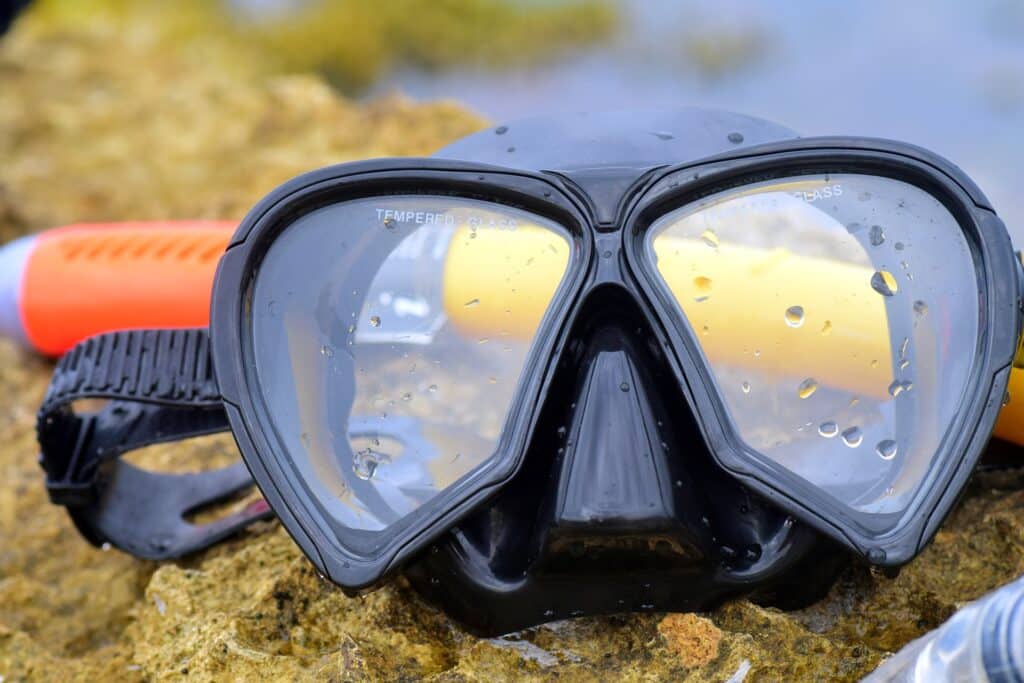
What are the alternatives to contact lenses?
Of course, as on land there are alternatives to contact lenses. When diving, you will be wearing a mask, a mask is of course like a pair of glasses. So why not have fixed lenses on the mask? We will now explore some of the options relating to lenses on masks.
Prescription masks
Prescription masks are like prescription glasses. The lens will be chosen based on precise eye measurements. Custom lenses can be put inside most masks on the market. It is therefore common for you to provide your existing mask which you know fits well for the custom lenses to be fitted to.
The main disadvantage of custom lens masks is price. It can cost between $300 and $400 for a high-quality set of prescription lenses. Unless you are a very regular diver, or you are unable to wear contact lenses, this may not make financial sense to you. In this case you may be better sticking with contact lenses.
A slightly cheaper option is to purchase drop-in lenses for your mask. These lenses have not been crafted for your own eyes but are available in common dioptre measurements. For diving these are generally good enough for most people. A set of droppings can be bought for around $100 to $200. They are therefore a good compromise between proper custom lenses and using contact lenses.
Going without contact lenses
Some people with only minor eyesight issues may simply decide that they can cope without any adjustment. Before making this decision, it is a good idea to try snorkeling or swimming without your glasses to see what visibility is like. Do not simply dive straight into a SCUBA dive without understanding the restrictions you will face.
Remember, you cannot speak underwater, so hand signals are the primary means of communication. If you are unable to see what your body is doing with their hands from a few meters away, you should definitely invest in contact lenses or a prescription mask.
Top tips for wearing contact lenses while SCUBA diving.
Can you wear contacts in the ocean? Yes, just follow our tips below for contact lens wearers:
- If possible, wear soft lenses
- Try to wear daily lenses rather than monthly
- Always tell your buddy and dive guide if you are wearing contact lenses
- After a dive always clean your eyes with some eye drops
- Always carry a spare set of contact lenses in case you lose them during the dive
- In the event your mask floods squint to help hold in the contact lens in place
Conclusion
So, can you wear contacts in the ocean? Yes, and there are many other options that exist for correcting your eyesight underwater. Contact lenses are probably the simplest method for those already familiar with wearing them. While prescription masks sound great, they are expensive. Wouldn’t you rather have a shiny new dive comp?
Whichever method you choose to correct your eyesight, ensure you are familiar with it. Do not try to put contact lenses in for the first time ever while rocking around on the speedboat journey to the dive site!
Some of the most beautiful views you will ever experience will be in the oceans. Make sure you experience these moments with the best vision possible.




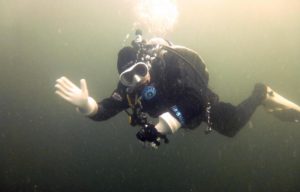
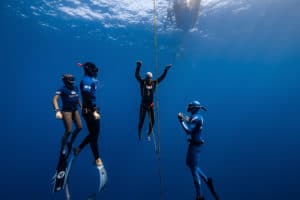


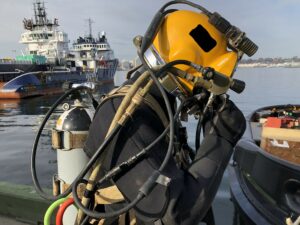
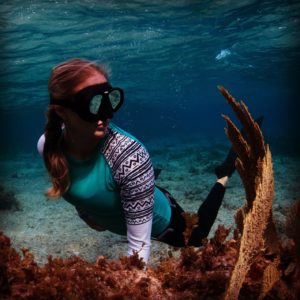
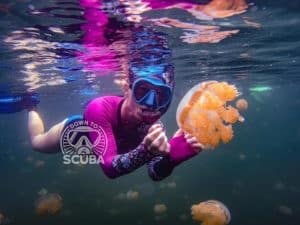



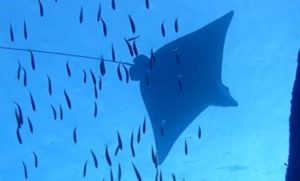

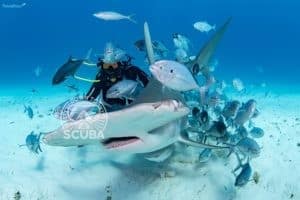

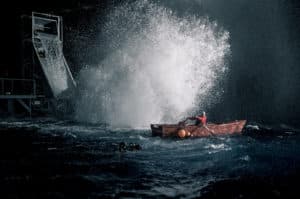

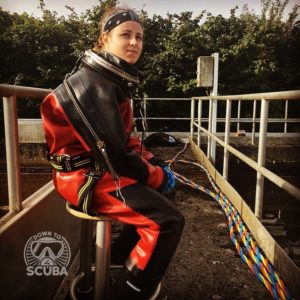
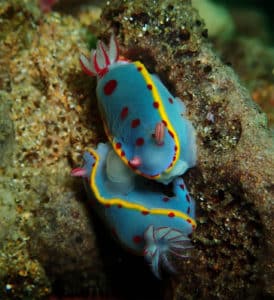

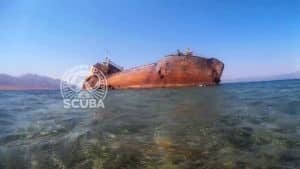

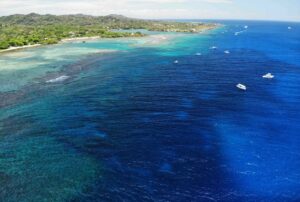
Leave a Reply
You must be logged in to post a comment.